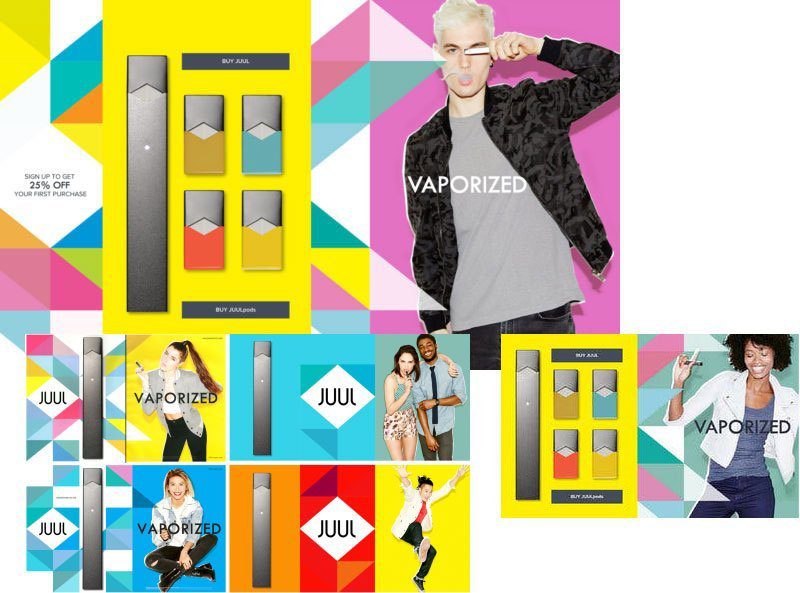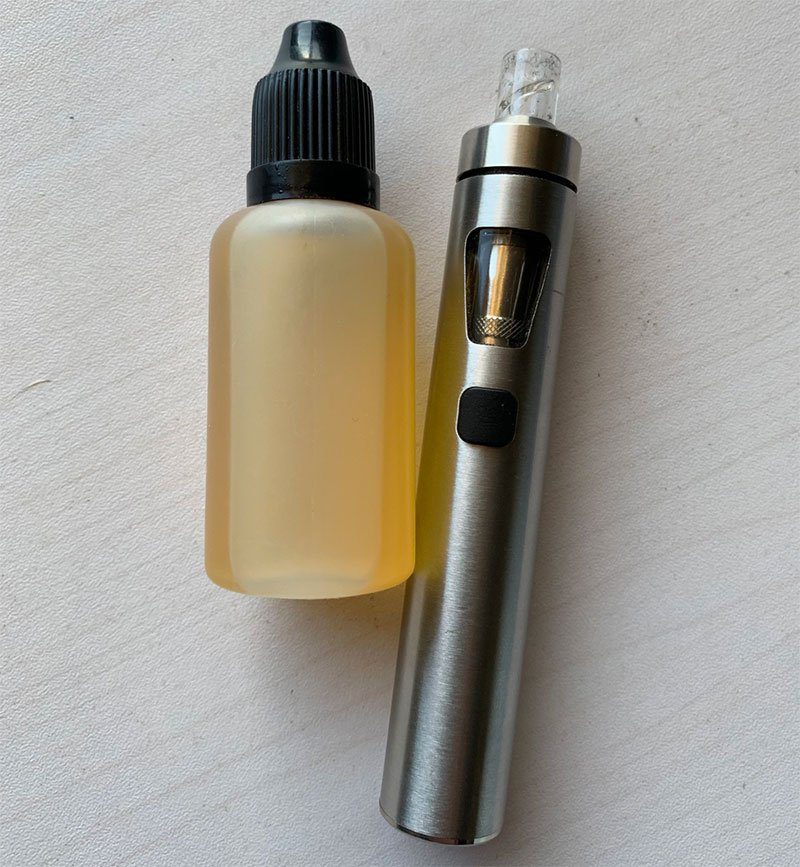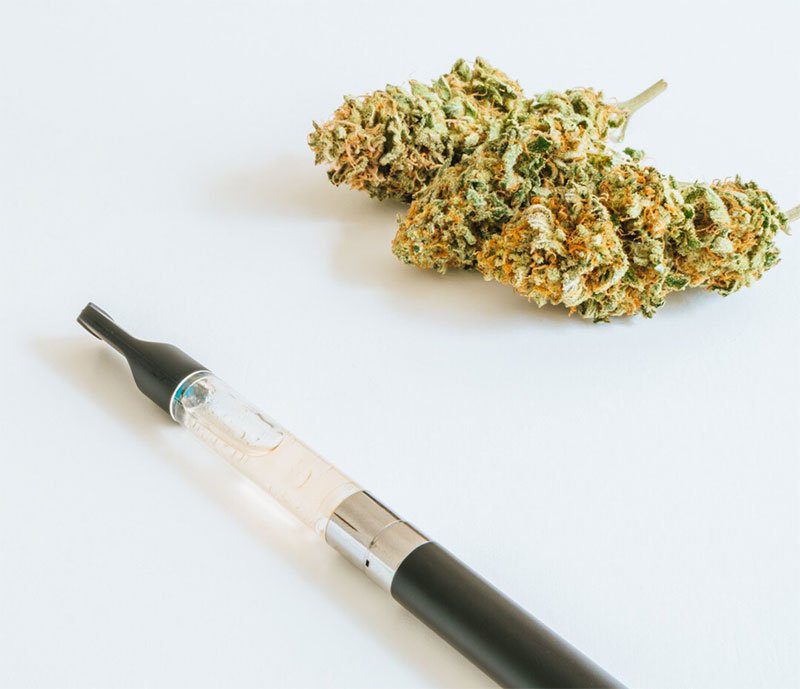
JUUL & E-Cigarette Lawsuit: What You Need to Know
You’ve most likely heard the commotion about e-cigarettes that has been going around, especially with JUUL e-cigarettes.
These devices have been found to cause lung issues, nicotine addiction, and other health detriments.
JUUL, in particular, has become very popular with minors, and their parents are not happy about it. As such, several lawsuits and bans about the Juul line of devices and other e-cigarettes have begun to crop up recently.
You need to know your rights, what restitutions JUUL and other companies are responsible for, and how you can make the most of this unfortunate situation.
In this article, we’ll go over JUUL’s misrepresentation, the dangers of JUUL and other e-cigarettes, and what kind of compensation you might be eligible for if you or your child’s life has been negatively impacted by these vaping devices.
Are E-Cigarettes Bad?
While the first e-cigarette was invented almost one hundred years ago, it didn’t become popular until the turn of the century. Since vaping and e-cigarette use only became widespread within the last decade or so, many people believe that its long-term health effects have not seen thorough enough study.
Indeed, researchers are starting to see more and more detrimental health effects that might be linked to vaping, such as:
- Increased blood pressure
- Higher risk of heart attack
- Addiction
- Popcorn lung
- Increased risk of smoking cigarettes
- Risk of suicide or depression
However, this doesn’t necessarily mean that vaping is outright wrong.
While it is certainly something that should be regulated, since it uses the addictive properties of nicotine just like cigarettes, many individuals think that vaping is a much healthier alternative to cigarette use.
Unfortunately, the fruity flavors typical in e-cigarettes have made them attractive to minors, as well, and this is where many of the issues with JUUL and other e-cigarettes have originated from.
Some ingredients in e-cigarettes and vape products have come under scrutiny as more becomes discovered about them.
Diacetyl is one example, and we will talk about it and others later on. While vaping is undoubtedly worse for you than breathing fresh, clean air, more research needs to be done on the long-term effects of vaping before it can genuinely be branded as “bad†for you.
The JUUL

The JUUL is an e-cigarette product that uses single-use vape cartridges, a variety of attractive flavors, and high levels of nicotine salts to create their product. While the company persists that JUUL was, and always has been, designed to be a stop-smoking aid, the product has come under fire regardless.
Is JUUL bad for you?Â
As with most e-cigarettes, we don’t have enough long-term research evidence to be able to show all of the long-term health effects of “JUULing,†but if you or your family has used a JUUL device and suffered adverse health effects, you may wish to file a JUUL lawsuit or find a JUUL lawyer for compensation.
JUUL Lawsuits & Cases
The JUUL lawsuit revolves around a handful of different issues, including:
- deceptive marketing
- undisclosed health risks
- and a few other related matters
The false marketing issues that JUUL has been accused of range over several categories, from unprovable claims that their vaping products are “safer than smoking†to deliberate marketing toward minors. We’ve also seen lawsuits against the company because of exploding batteries and vaporizers.
The JUUL lawsuit concerning exploding vaporizers is typical of e-cigarettes across many brands, and JUUL is not exempt from this majority. Because of the device’s lithium-ion battery, the whole machine is prone to issues like:
- Heating up to unsafe levels
- Shooting the battery out “like a bulletâ€
- Exploding
- Catching people or objects on fire
As far as the JUUL being “safer than smoking,†while this may or may not be an untrue claim, the important thing to note is that there is no evidence available that can prove that JUUL devices are safer than smoking.
Many people have already started their own JUUL lawsuits going after the startup for things like injury, addiction, disease, and even death.
There is no way to know whether “JUULing†is genuinely as detrimental to your health as cigarettes without further research, and as such, JUUL’s claims that the JUUL is “safer than cigarettes†are unprovable and thus false.
While most studies point to JUULing and vaping being relatively safe if done in moderate doses, for short periods, and without modifying the device or e-liquid, we do not have enough long-term evidence to know whether it is truly a “safe†option long-term.
Indeed, users have reported issues from using the JUUL and other e-cigarette devices ranging from lung cancer, popcorn lung, depression and suicide, nicotine addiction, and seizures to actual cell death from nicotine toxicity.
Many of these issues have sparked JUUL lawsuits, and while it’s anyone’s guess to whether these suits will be successful or not, users should nonetheless be vigilant about their use of the JUUL and similar e-cigarette devices.
JUUL Pods Banned in Retail Stores
As of 2018, JUUL took its pod products off store shelves in hopes of preventing sales to minors.
While the JUUL pods banned in retail stores are still available online, they’re not nearly as readily available since JUUL’s run-ins with lawsuits and other consumer complaints. JUUL pods banned in ordinary stores, JUUL has stated, may come back to stores that can verify customers’ ages accurately, preventing sale to minors.
JUUL pods banned in stores also have some additional restrictions placed on them since JUUL’s decision to pull the products from most retail shelves. Online, consumers can only purchase two JUUL e-cigarette devices and 15 pod packages per month, and they’re also limited to 10 e-cigarette devices per year.
Since its inception, JUUL has cornered more than 70% of the e-cigarette market.
JUUL Advertising to Minors

Those filing against JUUL claim that much of its success is due to marketing focused on young people, sex appeal, and inclusivity during the company’s infancy.
Now, the company maintains that it is, and has always been, no more than a stop-smoking aid, but as we all know, things posted on the internet last forever.
Some of JUUL’s earlier campaign ads suggest otherwise.
That being said, removing the pods and mods from store shelves seems like a step in the right direction. That is if they can enforce age-restriction policies. JUUL has stated that they will require buyers to enter critical identifying information, such as their social security number, to prove their age and identity.
However, as we’ve seen with both cigarettes and alcohol, these screening techniques are not foolproof.
JUUL Health Risks: Diacetyl in JUUL, JUUL Popcorn Lung, and More
As we’ve mentioned in this article, JUUL and other e-cigarette devices may carry serious health risks with their use.
However, we don’t yet know how many of these risks are attributable to e-cigarettes, JUUL, or other vaping products.
THC, for example, a cannabinoid added to some vape juices to produce a high, seems to be the common link between many recent vaping-related injuries and deaths, but we don’t know which symptoms or illnesses are the faults of THC or if it’s other additives at work.
The proposed JUUL health risks are many, but in the same way, mostly unconfirmed by official scientific research.
Some of these proposed risk factors include:
- Nicotine addiction
- Popcorn lung
- Heart damage or disease
- Lung cancer
- Impaired brain development
- Risk of depression or suicide
- Side effects associated with nicotine addiction and use
However, we do know a lot about nicotine already, so we know that nicotine toxicity and addiction can be both JUUL health risks and e-cigarette health risks.
An overdose of nicotine and over-inhalation of the vape juice can result in vape seizures or worse.
Diacetyl in JUUL
You have probably heard of the chemical Diacetyl if you have followed the vaping community in any capacity.
What is diacetyl?
How bad is diacetyl?
Many different stories and ideas have flown around, but Diacetyl is a flavoring chemical thought to cause a health issue called popcorn lung. Popcorn lung is so named because it was first observed in workers that spent their days in a popcorn factory.
The workers in the factory inhaled high levels of diacetyl in the air since the popcorn got its buttery flavor from diacetyl. Since diacetyl tastes like butter, it’s a common flavoring to add to vape juice, popcorn, and other products.
While the diacetyl in JUUL and popcorn alike (though drinking vape juice is never recommended) is entirely safe to eat, it can cause issues when inhaled.
If inhaling diacetyl is what causes JUUL health risks, is diacetyl in vapes safe?
Do vapes contain diacetyl?
Fortunately, the diacetyl in JUUL pods and other e-cigarettes is present only in minuscule quantities or completely nonexistent – far less than the levels that were revealed to have caused popcorn lung in the factory workers we mentioned above.
However, the question is, does vape cause popcorn lung?
It’s possible that JUUL popcorn lung could still crop up with extended, elevated use of JUUL or other diacetyl-containing e-cigarettes and juices.
JUUL popcorn lung is the common name for bronchiolitis obliterans, or the condition thought to be caused by diacetyl in JUUL and other products through inhalation.
Popcorn lung affects the lungs by restricting the smallest branches of your airways, making it feel like you can’t breathe or you’re short of breath.
However, JUUL no longer puts any diacetyl in modern Juul pods, and many other e-liquid companies have made the same business choice. In the UK, diacetyl is illegal to add to e-liquids.
High Nicotine in JUUL
Nicotine, which is present at extremely high levels in JUUL pods, for example, is known to cause developing brain issues in young people.
The human brain is not finished maturing until around the age of 25. As such, vaping high-nicotine-content products like JUUL can lead to permanent developmental issues in young people like:
- Increased risk of psychiatric disorders
- Increased risk of cognitive impairment
- Reduced brain activity
- Reduced ability to concentrate
- Memory issues
The problems above all come in conjunction with nicotine’s ever-present threat of addiction, as well as other risk factors like nicotine toxicity.
JUUL Addiction and Minors

One of JUUL’s most controversial choices was its marketing campaign specifically targeted at children and teenagers.
While JUUL claims that they never marketed their products to minors, their initial campaigns feature young people in group conditions that try to suggest that “JUULing†is cool among young people.
Additionally, the company has maintained a strong and steady social media presence, particularly on platforms that appeal to young adults and minors.
It’s also worth noting that the JUUL pods made to go with the device contain a significant amount of nicotine. Some of the JUUL lawsuits mentioned in the above section revolve around arguments that the real addictive qualities of Juul devices were not appropriately conveyed to buyers.
A JUUL capsule contains at least as much nicotine as a pack of cigarettes, and this figure can go even higher with certain JUUL flavors.
Disgruntled parents have argued, on behalf of their children, that they “didn’t know†about the high nicotine content of JUUL devices before using or buying them, and that these children acquire debilitating JUUL addictions as a result.
While vaping juices for other e-cigarettes can drop below tenths of a percent at a minimum, JUUL devices commonly contain around five percent nicotine. Like we mentioned above, this is as much (or more) nicotine as a pack of cigarettes.
While traditional e-cigarettes come in variable nicotine levels depending on the juice used (and some even with no nicotine content at all), JUUL pods always contain a high level of the chemical.
Minors may not know beforehand that these products contain such debilitating levels of nicotine. While there are undoubtedly other chemicals in JUUL and other e-cigarette products that can cause problems, nicotine most definitely isn’t exempt.
While a JUUL pod is not meant to be smoked in one sitting, and indeed not several per day, it contains high enough levels to cause seizures, nicotine toxicity, JUUL addiction, and other problems if used unwisely.
However, do keep in mind that these lawsuits are just that: lawsuits.
While nicotine can, without a doubt, cause JUUL addiction, symptoms of withdrawal, and other unpleasant effects, there is not yet proof showing that JUUL or related e-cigarettes have caused the health effects that they’re accused of. Only the court can determine whether these litigations have any merit.
In the meantime, though, you should be careful when purchasing and consuming any JUUL or e-cigarette product.
It is well-known and studied, though, that nicotine can cause developmental issues in maturing human brains. It can also cause problems during a woman’s pregnancy. Like we mentioned above, nicotine use before the brain has fully developed can result in a plethora of developmental setbacks in the mind.

To maintain proper brain development in young people, it would seem that enacting age-restriction techniques for nicotine-containing vape products is a step in the right direction.
After all, the effect of nicotine on the adolescent brain results in a self-perpetuating negative cycle: the adolescent becomes addicted, and the nicotine results in permanent changes to the child’s mind, leaving more likely to stay addicted into adulthood.
Nicotine Salts in JUUL
As we mentioned briefly before, JUUL pods contain a nicotine compound called nicotine salts. Nicotine salts are an altered form of nicotine that has been developed with additives, making it more readily absorbable.
From an economic standpoint, nicotine salts are said to offer a more pleasurable vaping experience than “freebase†nicotine, but from a health standpoint, there are some things to consider.
For one, the nicotine salts present in JUUL pods manifest in far higher levels than those in most traditional e-cigarette juices.
This kind of nicotine is also thought to be more readily absorbable, and this can cause problems if a child or young person get their hands on the liquid when they’re not supposed to. This is especially dangerous for young children, who might be tempted to drink or consume the juice because of its fruity flavors.
A JUUL pod, while containing more nicotine than a pack of cigarettes, is not necessarily meant to be used in one sitting.
Instead, JUUL pods are intended for use over hours or days.
As such, if a young child were to get their hands on a JUUL cartridge and consume it in its entirety, the child would likely suffer from very high levels of nicotine in the body.
Traditional vape juice, on the other hand, usually has less nicotine spread out over a much higher volume of liquid than that of JUUL cartridges. While this doesn’t necessarily mean e-cigarettes are better or worse than JUULing, it does mean that the health implications of them are understandably different.
JUUL also claims that, since their liquid uses nicotine salts, the JUUL experience is more similar to smoking a traditional cigarette. Because nicotine salts are also more pH-neutral than freebase nicotine, it also allows Juul to add more nicotine to their cartridges than regular e-juice without risking irritation of the throat.
If JUUL were indeed creating its products to market toward an audience attempting to quit smoking, these advances and the use of nicotine salts would be a substantial step forward, especially toward imitating a real cigarette.
However, these choices make the JUUL an unwise choice for minors, those who have never tried vaping, or anyone who’s not looking to quit smoking.
Since, contrary to JUUL’s official statements, some of their earliest marketing techniques do appear to shift towards young, tobacco-free individuals, this throws the design choices (and the choice to use nicotine salts) into question.
E-Cigarettes

E-cigarettes, or vapes, vaporizers, and other names, are the devices used to burn and vaporize flavored oils into an inhalable mist.
This mist contains different fruity flavorings and tastes, which has led to the popularity of these devices among young people. While vaping was thought to be harmless for a long time, new complications and illnesses have started to arise that put this judgment into question.
Just like with JUUL devices, far more research into the long-term implications of vapes needs to happen before they can definitively be “safe†or “bad.â€
In the same way that one cigarette is unlikely to kill you, though, vaping for a short time in moderation seems unable to cause any long-term impact.
However, Vaping is addictive by nature thanks to the presence of nicotine, so most users end up vaping for years or most of their lives.
While many types of vapes, including JUUL, claim to be “stop-smoking aids,†they are not particularly useful for this purpose. Since vaporizers and e-cigarettes replicate both the habit and the feel of smoking a regular cigarette, they do little other than provide an alternative way to settle the urge.
More often than not, vaping neither stops users from smoking cigarettes nor kicks the nicotine habit entirely.
As with JUUL, the use of e-cigarettes can have many risk factors beyond long-term health effects.
In the short term, vaporizers and e-cigarettes are prone to mechanical failures or battery issues that can cause bodily harm to both the user and nearby people, and vaping also often exclude users from entering and enjoying individual establishments. While vaping tend to be accepted more readily than smoking, in part because of its pleasant smell, many places choose to ban the use of both.
If you believe vaping or the use of an e-cigarette has hurt you or damaged your health in any way, it’s a good idea to look into hiring a lawyer that specializes in JUUL & e-cigarettes.
We will cover more on this as well as related lawsuits below.
E-Cig Lawsuits and the FDA Vape Lawsuit
What’s the FDA vape lawsuit all about?
Well, there are several E-cig lawsuits floating around as well as vape class action lawsuits, and that’s in addition to JUUL’s marketing-related trial.
Some examples include:
- Exploding devices
- Fires caused by vaporizers and e-cigarettes
- Seizures thought to be caused by vaping
- “Vaping illnessâ€
However, most E-cig lawsuits for non-JUUL e-cigarettes and vaporizers concern unstable batteries and devices.
As any user of a device with a rechargeable battery can attest, these devices can pose a hazard to users, especially if they suffer from faulty manufacturing or design.
Exploding e-cigarettes can cause injury, start fires, or even result in death, especially if the explosion happens while vaping.
More than half of these explosions occur when the vape is actively being used or carried on one’s person, making the statistic even scarier. These incidents can also happen while a user is driving, for example, resulting in car accidents or unsafe conditions.
When the batteries or mechanics in an e-cigarette explode, not only does the vaporizer itself become a deadly projectile, but the vape juice contained within becomes akin to boiling oil.
Both hazards can leave lasting injury or scars on victims, and can even result in deaths from vape.
On the other end of the spectrum, both citizens and vaping companies alike have been trying their hand at suing the FDA itself.
The FDA vape lawsuits have cropped up several times between these parties, all in the effort to get the FDA to loosen its proposed restrictions over vaping.
In all scenarios, the FDA has tried to institute laws that would allow them to regulate the sale of vaping products. Their new “deeming rule,†as it’s called, will include things like:
- Bringing e-cigarettes and other vaping devices under FDA regulation to join cigarettes and other tobacco products
- Requiring relevant health warnings on e-cigarette products
- Requiring manufacturers of vaping juices and e-cigarettes to show that their products meet public health standards
- Preventing the sale of e-cigarettes to minors through age verification technology
Many vaping authorities have moved to oppose this ruling as it will astronomically increase the price of vaping products because of more rigorous testing requirements.
In part, they appear to have succeeded because the FDA has pushed back the deadline for companies to adhere to this new ruling to 2022. Initially, it was set to begin its review starting in 2018.
However, because of this decision, there have been parties from the other side enacting their own FDA vape lawsuits and E-cig lawsuits, too.
Agencies like the Campaign for Tobacco-Free Kids and the American Lung Association have argued that regulation of vaping products should occur sooner rather than later, and in an effort to get the FDA to reverse their postponement, have taken legal action.
E-Cigarette Health Risks
Just like JUUL devices, standard e-cigarettes carry several known or suspected health implications along with their use.
Nicotine addiction is the foremost and most well-known of them, of course, but there are many other vape health risks to be aware of.
One of the most important questions people ask is, can you get lung cancer from vaping?
While scientists have been able to link some of the compounds present in e-cigarette juice to cancer or increased risk of developing the disease, there is still no definitive proof that vaping itself causes cancer.
If you are worried about the prospect of developing lung cancer from vaping, it may be best to avoid vaping to be safe.
However, until more long-term research happens, there is no way to determine the answer.
Otherwise, vaping carries with it much of the same risks as using a JUUL device does. While e-cigarette juices can range more in nicotine content than JUUL cartridges, they are still prone to the same issues with nicotine toxicity and addiction.
They can also be considered a “gateway†to smoking cigarettes, especially for teens and young people.
However, it is also clear that a string of vaping-related illnesses has been cropping up among users of e-cigarettes recently. Doctors and researchers still aren’t sure what is causing these problems, whether they can be linked to vaping, or how to prevent and treat them.
Vaping is the prevailing trend among all of these cases of “vaping illness,†however.
This “vaping illness†generally starts with shortness of breath and chest pain, which can then escalate to pneumonia-like symptoms.
If these symptoms are left untreated, victims can end up in the hospital or even dead. While the FDA and CDC are unable to link these symptoms to one brand or flavor of vape juice, one factor seems to be nearly universal between victims: the use of THC cartridges containing vitamin E acetate.
Vitamin E Acetate
Vitamin E acetate, a common derivative of vitamin E, has been a common link found between many of the “vaping illnesses†studied across the country lately.
While vitamin E acetate and vitamin E are mostly harmless to consume and use on the skin, its oily structure makes it deadly when inhaled. While it can’t yet definitively be called the cause of the “vaping illness,†it is a strong contender, and it’s even on the FDA’s radar.
A New York investigation, in particular, is concerned with vitamin E acetate being at fault, as they have identified the chemical in “nearly all†of their tested samples.
Vitamin E acetate is a dense, greasy substance that can vaporize, then return to its previous state and coat the insides of the lungs. It’s thought that this is part of the reason why vitamin E acetate seems to be at fault, though more research needs to be done to know for sure.

However, it would be unwise to pin all of the blame on vitamin E acetate right away. While avoiding this chemical in your vaping products is recommended, nothing has been proven yet. Consumers should be especially careful to watch out for THC-vaping cartridges or oils, especially those that might be counterfeit or black market, as these have a higher chance of containing the harmful oil.
Non-Addictive E-Cigarettes
One topic that seems to be strangely absent from the vape debate appears to be non-addictive vape juices.
Not all e-liquids even contain nicotine; many flavors are available in both nicotine-containing and nicotine-free varieties.
While the research on these liquids is still just as lacking as those with nicotine, most of the outrage over the vaping epidemic seems to be over nicotine and addiction.
Parents are worried that their children are getting addicted to vapes because of their nicotine content, and rightfully so.
However, it doesn’t often get mentioned that nicotine-free options are available out there instead.
Should nicotine-free vaping options be made available to minors to combat the use of addictive, nicotine-containing juices? Perhaps more education on the subject can help young people make smart choices instead?
It would be ignorant to assume that vaping anything is risk-free.
After all, inhaling anything into your lungs that isn’t fresh, clean air has the potential to cause adverse health effects over time. However, it’s an undeniable fact that talks of nicotine-free e-cigarettes seem to be strangely absent from the recent debate, and these options deserve as much research and looking-into as any other.
Just like nicotine-containing e-cigarettes, nicotine-free options have some obvious health risks to worry about, though the long-term implications are still not clear yet.
Some known risks to consider include:
- Irritation of the mouth and airways
- Inflammation in the lungs, throat, and throughout the body
- Toxicity of certain e-liquid ingredients
- Malfunction of the vaping device
It’s not wrong to ban or limit the purchase of these vaping products until we know for sure what’s causing the adverse health effects in people.
However, non-nicotine options should not be overlooked in these investigations, either. If you believe you or your child has suffered because of the effects of non-nicotine vapes, you should look into contacting an e-cigarette lawyer for help.
Finding a Vape Lawyer, E-Cig Lawyer, or JUUL Lawyer
If you believe that the health or physical effects of JUULing, vaping, or otherwise have negatively affected your life, now is the time to seek out a vape lawyer, e-cig lawyer, or JUUL lawyer.
A lawyer experienced in handling e-cigarette-related lawsuits can help you find the restitution you deserve, especially in these uncertain times.
If you’re not looking for an attorney, or if you haven’t been impacted by vaping negatively, it may still be a good idea to keep away from the activity for now, or at least until the cause for these incidents becomes identified.
This goes doubly for personal or home-made vaporizers or juices, which can be more harmful than those made under lab conditions.
Vape lawyers and JUUL attorneys are available across the country to represent your case, often at no cost to you unless they win.
The vaping industry is highly unregulated and under-researched, and while the FDA is moving to change that, you must be cautious about your health and safety in the meantime.
Vape Bans and Controversy
Recently, the controversial nature of vapes and the plethora of associated unknown health effects have caused turmoil in communities the world over.
The United States, in particular, has seen several cities and states ban the sale of flavored vape liquids already, all in the name of reducing the epidemic of vaping among minors. Whether this will be effective or not is anyone’s guess.
Michigan was the first state to see the ban of flavored e-cigarette liquids, both on online platforms and in retail stores. Since then, Massachusetts, Rhode Island, and New York have all elected to ban the sale of products or their use in their entirety, and the city of San Francisco, California did the same.
President Donald Trump is also purportedly working on a nationwide ban on the products until a more definitive conclusion on their safety appears.
Both suppliers and consumers understand that these bans on e-cigarettes are only temporary; the bans were enacted in the various cities and states to try and prevent more health incidents from happening until more becomes known about what’s causing them.
However, it’s debatable whether these bans will be useful or not.
The reason for this debate is because many people believe that black-market cartridges, specifically those containing THC, are responsible for the illnesses and deaths among consumers. While there is nothing more than anecdotal evidence to support this, longtime vape users and supporters of the trend are up in arms about these “ineffective†bans.
As such, the recent bans are mired in controversy, and both individuals and suppliers have struck back against the ban-casting legislations with lawsuits of their own. While it looks like these suits are unlikely to get anywhere with things as they are now, it seems that all there is to do is wait and see.
If the cause of the issue truly is black-market cartridges, banning official sales will likely have little or no effect on the number of cases we see.
On the other hand, if it’s official products that are causing this outbreak, banning them may be just what we need to get on our feet again.
Contact Stoy Law Group, PLLC
It’s clear that, while it would be ignorant to consider vaping products, JUUL, and e-cigarettes 100% safe, there is no way to know how far the extent of recent health damage goes.
As of now, the nation is in an uproar full of confusion and indecision. While exploding vape cartridges and nicotine addiction is one thing – these are risks you willingly accept when you choose to use an e-cigarette or JUUL – this unknown “vape disease†is entirely different.
The takeaway here is that there isn’t always a way to know the real health implications of something before it’s been studied for many years. We’ve seen this with products in the past, such as asbestos and cigarettes, too.
Right now is the time to seek the help of an experienced lawyer if you believe you’ve been wrongfully injured or inconvenienced by vaping-related complications.
If you have further questions or would like to speak to an attorney, contact Stoy Law Group today. Chris Stoy is currently representing e-cig and JUUL related cases throughout Texas and is the leading expert in the Dallas – Fort Worth metroplex.